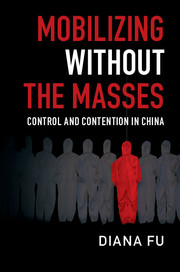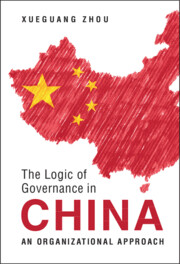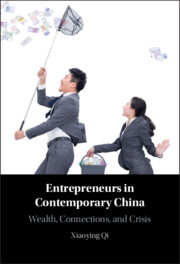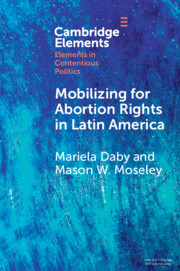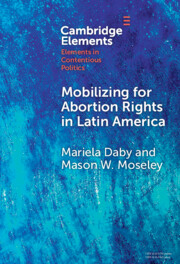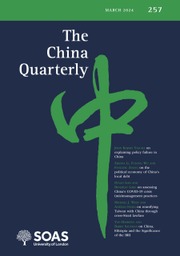Mobilizing without the Masses
When advocacy organizations are forbidden from rallying people to take to the streets, what do they do? When activists are detained for coordinating protests, are their hands ultimately tied? Based on political ethnography inside both legal and blacklisted labor organizations in China, this book reveals how state repression is deployed on the ground and to what effect on mobilization. It presents a novel dynamic of civil society contention - mobilizing without the masses - that lowers the risk of activism under duress. Instead of facilitating collective action, activists coach the aggrieved to challenge authorities one by one. In doing so, they lower the risks of organizing while empowering the weak. This dynamic represents a third pathway of contention that challenges conventional understandings of mobilization in an illiberal state. It takes readers inside the world of underground labor organizing and opens the black box of repression inside the world's most powerful authoritarian state.
- Explains a novel dynamic of mobilization under authoritarianism
- Uses political ethnography to study hard to access organizations, including illegal ones
- Offers a bottom-up, disaggregated approach to studying repression
Awards
Winner, 2018 Luebbert Best Book Award, Comparative Politics Section, American Political Science Association
Reviews & endorsements
'Nearly seventy years ago, Mao Zedong’s Communist party came to power through mass protests and a people’s army. Since then his successors have been increasingly intent on limiting the possibilities for mass protest against their policies or organized resistance of any sort. Diana Fu ingeniously explores and explains how China’s modern citizens are working around those constraints and creating new forms of apparently unorganized resistance. This is an important and under-appreciated part of the struggle to determine China’s political future.' James Fallows, Senior Editor, The Atlantic
'Her deeply embedded ethnography shows how organizers have adapted to the fragmented opportunity structure of the Chinese state at the local level. Her book represents an important contribution to the literature on contentious politics and is a milestone in our understanding of China’s powerful but deeply flawed industrial relations system.' Sidney Tarrow, Maxwell M. Upson Professor Emeritus of Government, Cornell University, and author of Power in Movement
'Based on remarkable participant-observation field work, Diana Fu provides a rare and revealing look inside the otherwise opaque world of China’s labor NGOs … Mobilizing Without the Masses is a must-read, not only for those studying contemporary China but for anyone interested in the possibilities for social mobilization and social justice in authoritarian regimes.' Elizabeth J. Perry, Henry Rosovsky Professor of Government, Harvard University, Massachusetts
'… Mobilizing Without the Masses stands out for disaggregating the state horizontally, rather than vertically, and because it unpacks the repression-mobilization nexus in a strikingly bottom-up, close-to-the-ground way. Fu explores what needs to be collective about collective action and how the response to migrant worker demands is not always uniform … we are not likely to see another book like this on Chinese activism and techniques of control soon.' Kevin J. O’Brien, University of California, Berkeley
Product details
November 2017Hardback
9781108420549
206 pages
236 × 157 × 17 mm
0.42kg
2 b/w illus. 7 tables
Available
Table of Contents
- 1. Introduction: organizing under duress
- Part I. Technologies of Control:
- 2. Labor organizations in China
- 3. Fragmented control
- 4. Competitive control
- Part II. Coaching Contention:
- 5. Micro-collective action
- 6. Atomized action
- 7. Discursive action 8. A political compromise? Appendix: political ethnography
- Bibliography.

